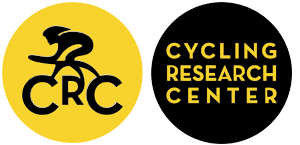From Cycling 1.0 and 2.0 to Cycling 3.0: The Evolution of a Sport through Science, Ethics, and Artificial Intelligence
DOI:
https://doi.org/10.28985/1425.jsc.14Keywords:
Cycling 2.0, Cycling 3.0, Athlete 2.0, Ethics, AI, Sport Science, Anti-Doping, GovernanceAbstract
This editorial presents a comprehensive account of cycling’s historical and conceptual evolution from the traditional and empirically-based Cycling 1.0, through the collaborative, ethical and evidence-driven Cycling 2.0 (Zabala & Atkinson, 2012), to a proposed Cycling 3.0 era shaped by artificial intelligence (AI). Drawing on original sources, publications, and later empirical studies, it argues that the sport’s ethical and scientific progression should remain grounded in transparency, collaboration, and athlete education. The Cycling 3.0 paradigm can amplify the benefits of 2.0, provided that its algorithms, data systems, and governance frameworks can respect the humanistic and ethical foundations that rescued cycling from its 1.0 crises.
Downloads
References
Arribas, C. (2013). Bienvenidos al Movistar 2.0. El país. https://elpais.com/deportes/2013/01/11/actualidad/1357904292_077412.html
Barbado, C. (2025) Ciclismo indoor 3.0. https://www.barbadocycling.es/ciclismo-indoor-30-superentrenamiento
Clear, J. (2018) Atomic habits: British cycling update. https://jamesclear.com/atomic-habits/cycling
Fincoeur, B., Gleaves, J. & Ohl, F. (2020). Doping in cycling: Interdisciplinary perspectives. Routledge, London (UK).
Federal government of Germany (federal Ministry of Transport). National Cycling plan 3.0. https://www.bmv.de/SharedDocs/EN/Articles/StV/Cycling/nrvp.html
Horcajo, J. and Zabala, M. (2017) Psychological strategies for team building. Ch 24 p 299-312. In Cheung S.S., and Zabala, M. (Eds.) Cycling Science (Human Kinetics, Champaign, Illinois).
Maestre, J. M. (2015). Millennials en el ciclismo español 2.0: Nueva propuesta de lucha contra el dopaje. Cultura, Ciencia y Deporte, 10(30), 199–213. https://ccd.ucam.edu/index.php/revista/article/view/589/340
Morente-Sánchez, J., Leruite, M., Mateo-March, M., & Zabala, M. (2013). Attitudes towards doping in Spanish competitive female cyclists vs. triathletes. Journal of Science and Cycling, 2(2), 40–48. https://jsc-journal.com/index.php/JSC/article/view/49/101
Morente-Sánchez, J., & Zabala, M. (2013). Doping in sport: A review of elite athletes’ attitudes, beliefs and knowledge. Sports Medicine, 43(6), 395–411. doi: 10.1007/s40279-013-0037-x
Morente-Sánchez, J., & Zabala, M. (2014). Spanish cycling and attitudes towards doping of different stakeholders involved. J Sci Cycling. Vol. 3(1), 21-25. https://jsc-journal.com/index.php/JSC/article/view/82/109
Rønnestad, B.R. and Zabala, M. (2017) Training periodization. Ch 28 p 352-361. In Cheung S.S., and Zabala, M. (Eds.) Cycling Science (Human Kinetics, Champaign, Illinois).
Santayana, G. (1905-1906). The Life of Reason, or the Phases of Human Progress. Volume I: Reason in Common Sense (ch 12, p 284). New York: Charles Scribner’s Sons.
Sitko, S. (2025). Ciclismo 2.0: Entrenamiento basado en evidencia para mejorar sobre las dos ruedas. Self-published book / Sitko Training. https://sitkotraining.shop/products/ciclismo-2-0-entrenamiento-basado-en-evidencia-para-mejorar-sobre-las-dos-ruedas
Vega, I. (2019). El ciclismo 3.0. Blog https://joanseguidor.com/ciclismo-3-0/
Zabala, M. (2012a). Si queremos ciclismo 2.0 necesitamos directores 2.0. Blog https://joanseguidor.com/si-queremos-ciclismo-2-0-necesitamos-directores-2-0-por-mikel-zabala/
Zabala, M. (2012b). Dejen paso al ciclismo 2.0. El país. https://elpais.com/deportes/2012/10/22/actualidad/1350932051_048932.html
Zabala, M. (2013). Present and future of Journal of Science and Cycling. Journal of Science and Cycling. 2(2), 1. https://jsc-journal.com/index.php/JSC/article/view/69/103
Zabala, M. (2017) Doping’s dark past and a new cycling era. Ch 18 p 220-232. In Cheung S.S., and Zabala, M. (Eds.) Cycling Science (Human Kinetics, Champaign, Illinois).
Zabala, M. (2021). Intrusiveness in professional and world tour road cycling: The “Troy horse” playing the role of coaches, head of performance or sport-science professionals. Journal of Science and Cycling, 10(3). doi: 10.28985/1221.jsc.13
Zabala, M. (2022). Coach-athlete relationship. Lecture notes of the module “Sport specialization: Cycling” of the Degree of Physical Activity and Sport Sciences, University of Granada (Spain). Cited in Javaloyes, A. and Mateo-March, M. (2022) Only what is necessary: the use of technology in cycling and concerns with its selection and use. Journal of Science and Cycling, 11(3), p 1-2. doi: 10.28985/1322.jsc.16
Zabala, M. (2023). La cara B del ciclismo: intrusismo, gurús y cientifismo. Podcast “Sitko Talks”, Ep 4, Abril 2023 (min 7:12). https://www.youtube.com/watch?v=8J0K3rhPacU
Zabala, M. (2024). Dopaje, intrusismo y polémica en el ciclismo de elite. Podcast “Hijos de la resistencia”, 18, Abril 2024 (min 3:50). https://www.youtube.com/watch?v=QXp5E3uiz2Y
Zabala, M., & Atkinson, G. (2012). Looking for the “Athlete 2.0”: A collaborative challenge. Journal of Science and Cycling, 1(1), 1–2. https://jsc-journal.com/index.php/JSC/article/view/17/35
Zabala, M., Morente-Sánchez, J., Mateo-March, M. and Sanabria, D. (2016) Relationship Between Self-Reported Doping Behavior and Psychosocial Factors in Adult Amateur Cyclists. Sport Psychologist, Jan 2015 30 (1): 68-75. doi: 10.1123/tsp.2014-0168
Published
How to Cite
Issue
Section
Copyright (c) 2025 Journal of Science and Cycling

This work is licensed under a Creative Commons Attribution-NonCommercial-NoDerivatives 4.0 International License.
Authors contributing to Journal of Science and Cycling agree to publish their articles under a Creative Commons CC BY-NC-ND license, allowing third parties to copy and redistribute the material in any medium or format, and to remix, transform, and build upon the material, for any purpose, even commercially, under the condition that appropriate credit is given, that a link to the license is provided, and that you indicate if changes were made. You may do so in any reasonable manner, but not in any way that suggests the licensor endorses you or your use.
Authors retain copyright of their work, with first publication rights granted to Cycling Research Center.







